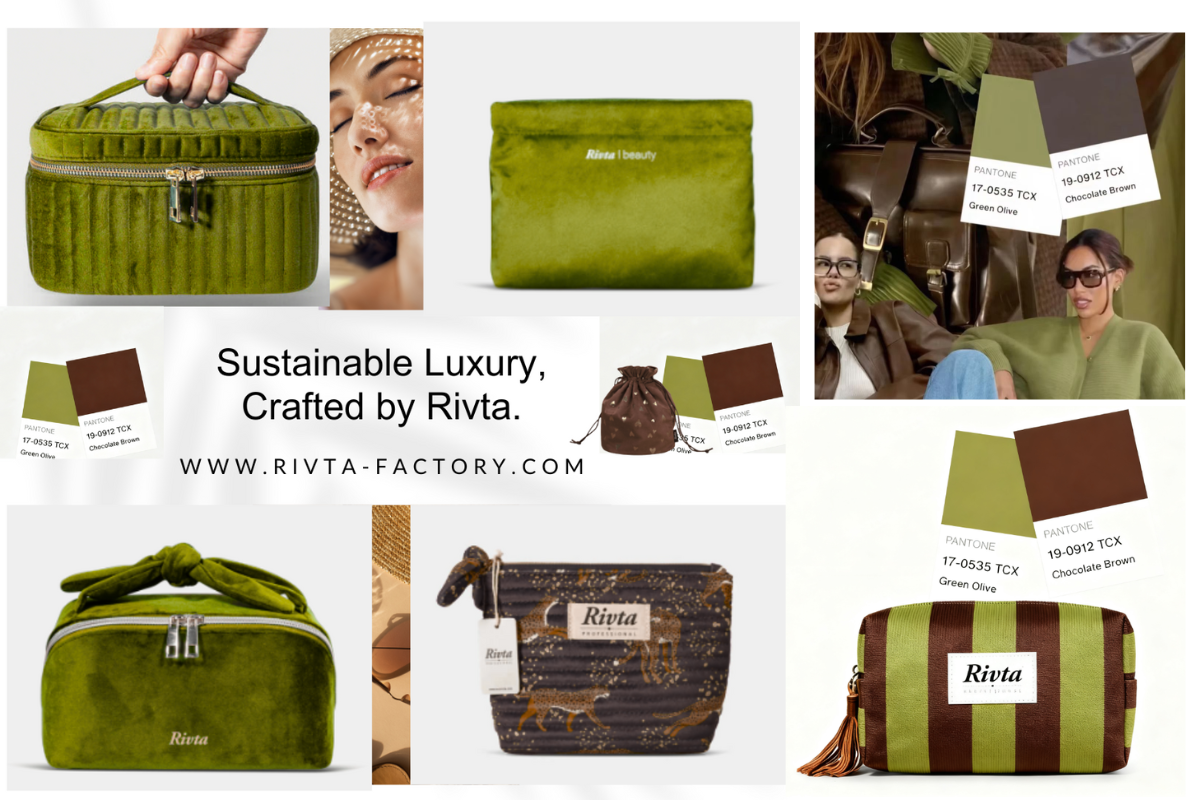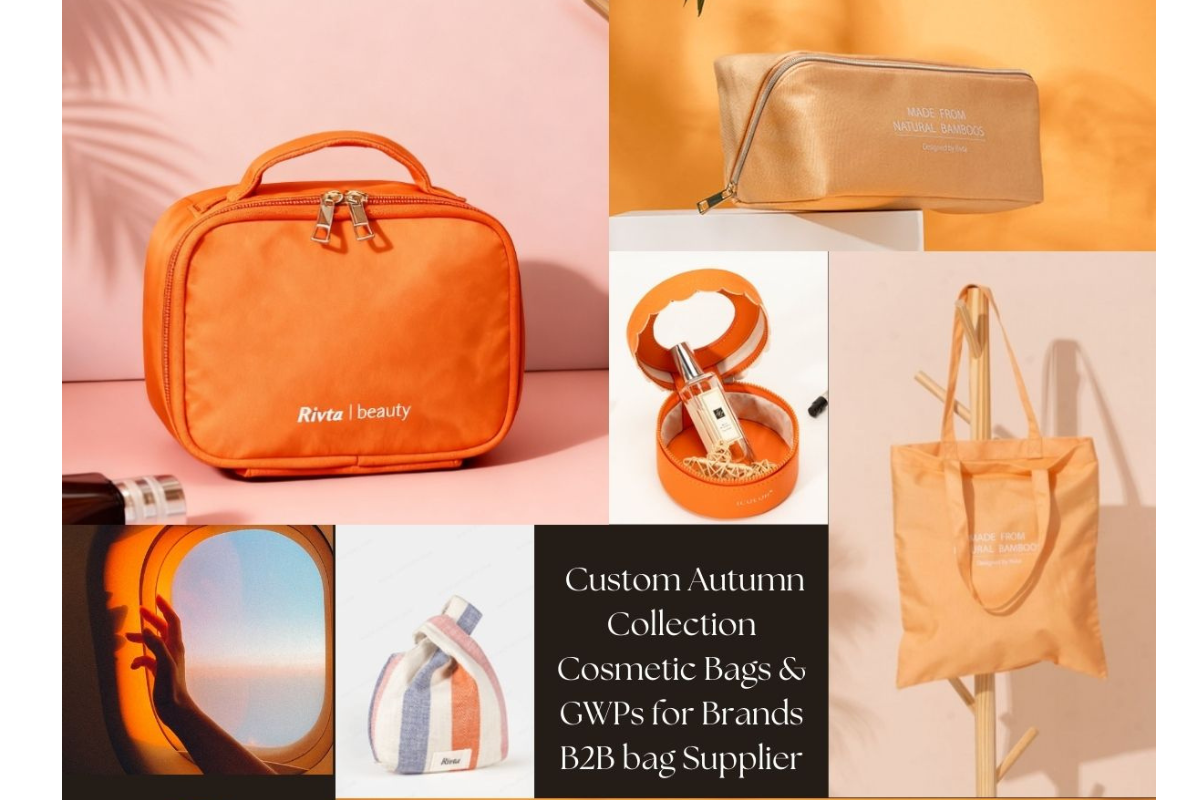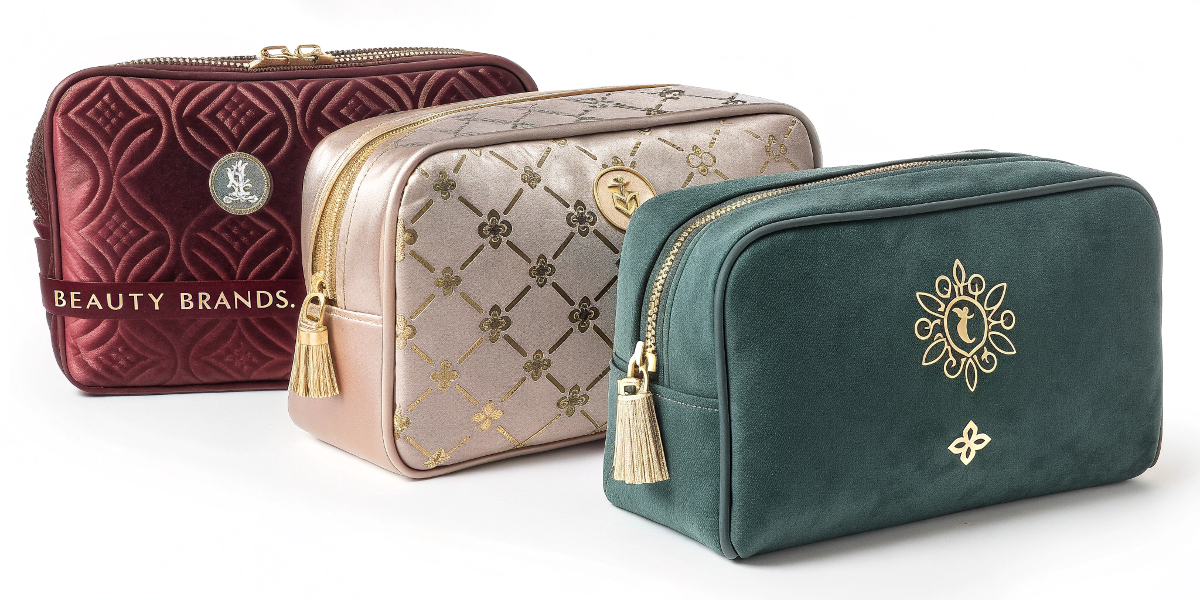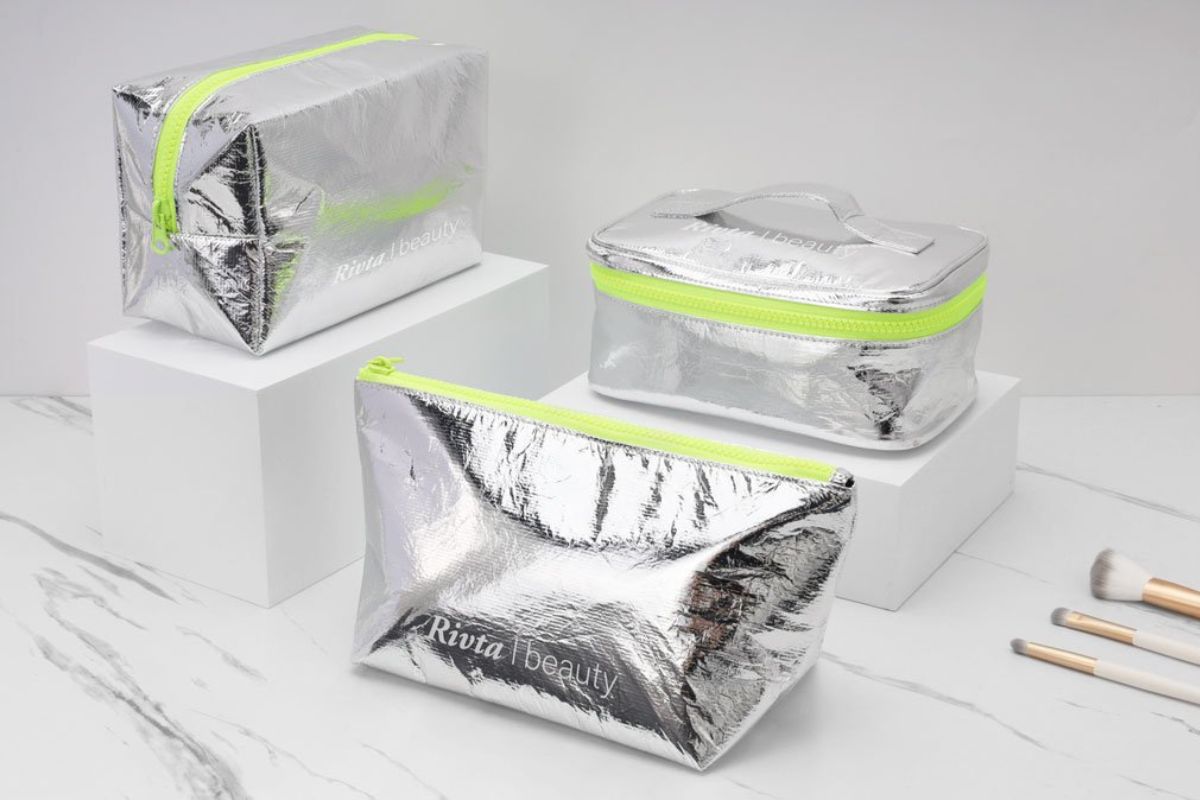Top 10 Materials for Eco-Friendly Cosmetic Cases
As sustainability drives the beauty industry, brands seek eco-friendly materials for cosmetic cases that blend functionality, aesthetics, and environmental responsibility. This blog presents the top 10 eco-friendly materials for 2025 cosmetic cases, ideal for primary packaging (e.g., lipstick tubes, compacts) and secondary packaging (e.g., cosmetic bags). Backed by industry views, this guide helps you make strategic, sustainable choices.
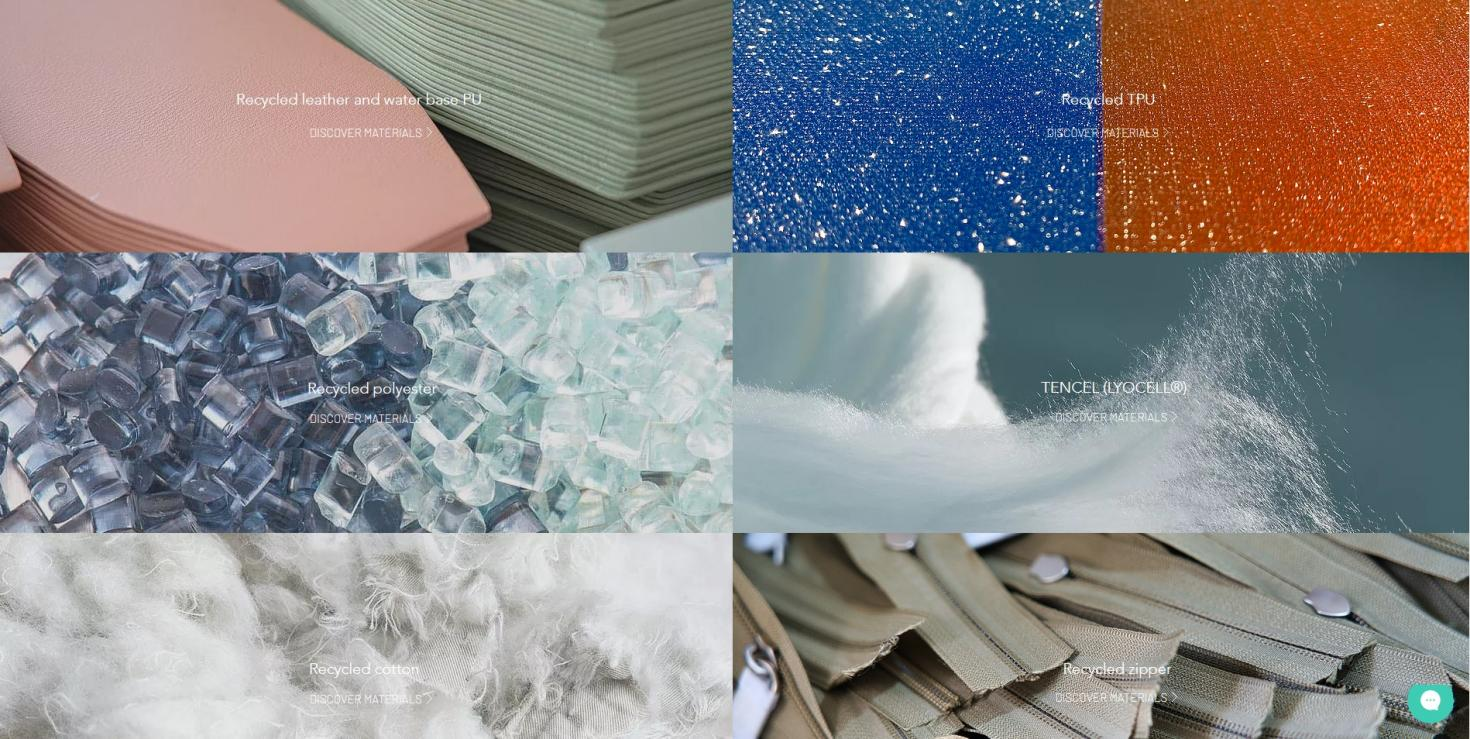
Why Eco-Friendly Cosmetic Cases Are Essential
The beauty industry generates 120 billion packaging units annually, mostly non-recyclable plastic (Source: Zero Waste Week). With 73% of consumers willing to pay more for sustainable products (Source: Nielsen, 2023) and the EU’s PPWR mandating 100% recyclable packaging by 2030, eco-friendly cosmetic cases are critical for U.S. and European brands to boost loyalty and compliance. Below, we explore the top 10 eco-friendly materials for cosmetic cases, informed by industry trends.

Top 10 Eco-Friendly Materials for Cosmetic Cases
Based on Rivta’s extensive experience and material offerings, the following 10 eco-friendly materials are ideal for cosmetic cases, including makeup cases, toiletry bags, and packaging solutions. Each material is selected for its sustainability, durability, and suitability for beauty brands.
1. Bamboo Fiber
Description: Derived from fast-growing bamboo, this renewable fiber is biodegradable and requires no pesticides, making it a sustainable choice.
Applications: Cosmetic bag linings, compact exteriors, brush bags.
Benefits: Lightweight, durable, and biodegradable, with a natural aesthetic for eco-conscious branding.
Challenges: Limited water resistance may require coatings for some applications.
Why Choose It: Bamboo’s rapid regrowth (up to 3 feet per day) minimizes environmental impact, and its versatility suits both rigid and soft cases.
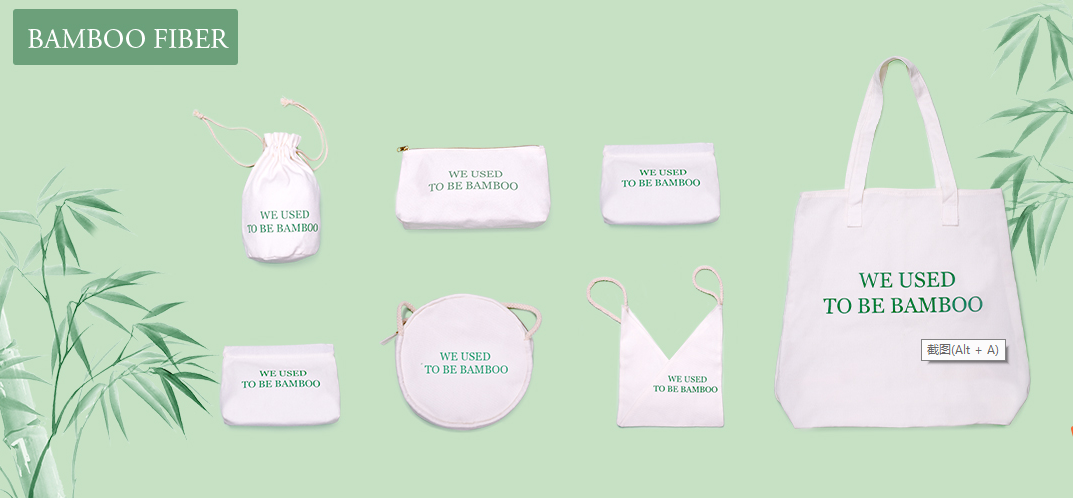
2. Tencel
Description: A sustainable fiber made from eucalyptus wood pulp, Tencel is produced in a closed-loop process that recycles water and solvents.
Applications: Cosmetic bags, drawstring pouches, soft packaging.
Benefits: Soft, breathable, biodegradable, and low environmental impact during production.
Challenges: Higher cost compared to traditional fabrics.
Why Choose It: Tencel’s luxurious texture and eco-friendly production make it ideal for premium cosmetic bags, appealing to high-end markets.
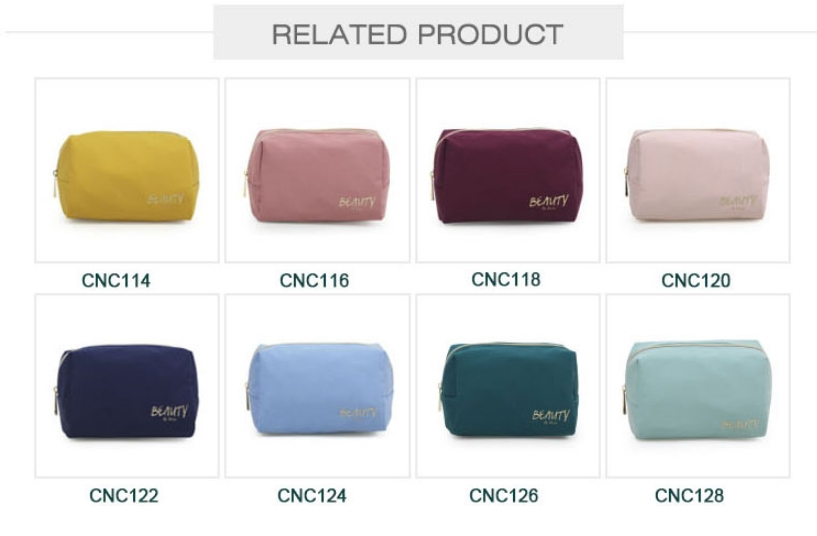
3. Natural Jute
Description: A strong, biodegradable fiber from the jute plant, known for its durability and rustic appeal.
Applications: Tote-style cosmetic bags, secondary packaging, travel pouches.
Benefits: Renewable, compostable, and cost-effective.
Challenges: Coarse texture may limit use in premium or soft-touch cases.
Why Choose It: Jute’s affordability and sustainability make it a practical choice for eco-friendly secondary packaging.
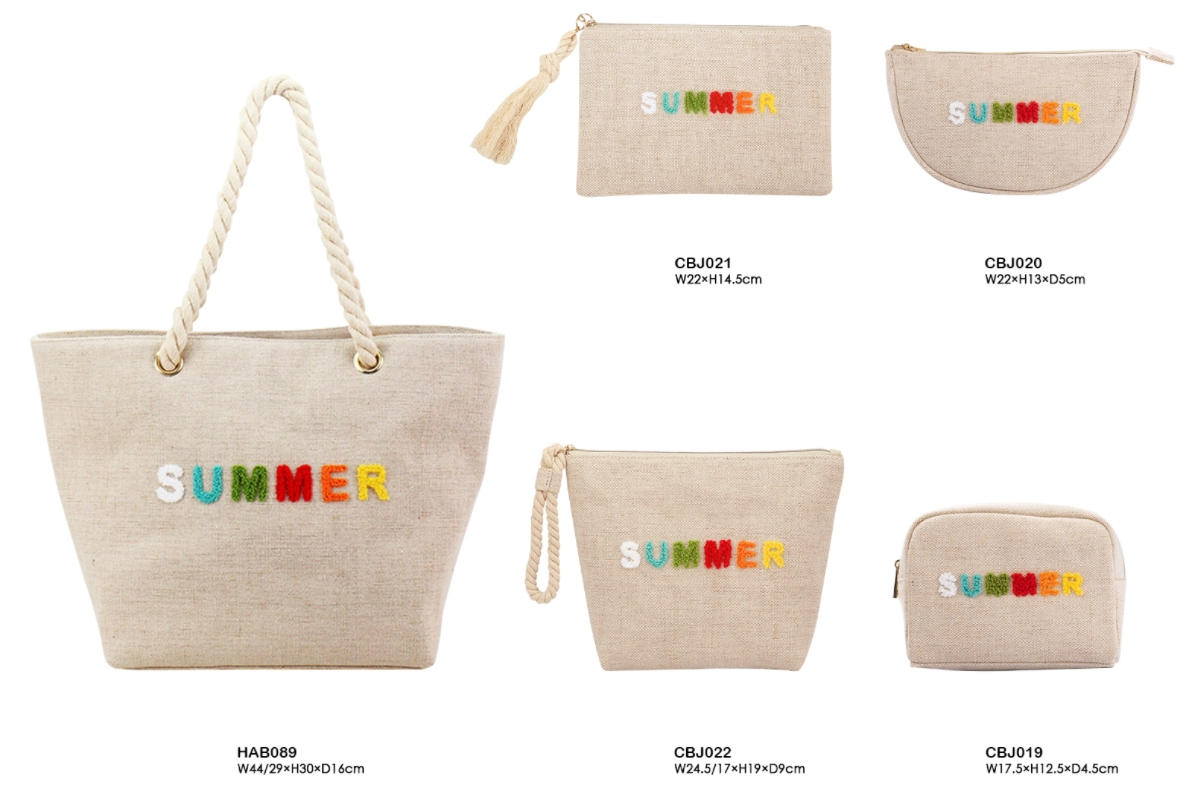
4. Linen Cotton
Description: A blend of linen (from flax) and organic cotton, offering a natural, durable, and biodegradable option.
Applications: Cosmetic bags, toiletry bags, brush holders.
Benefits: Renewable, breathable, and customizable for branding.
Challenges: Limited water resistance unless treated.
Why Choose It: Linen cotton’s natural look and feel align with eco-conscious consumer preferences, ideal for soft, stylish cases.
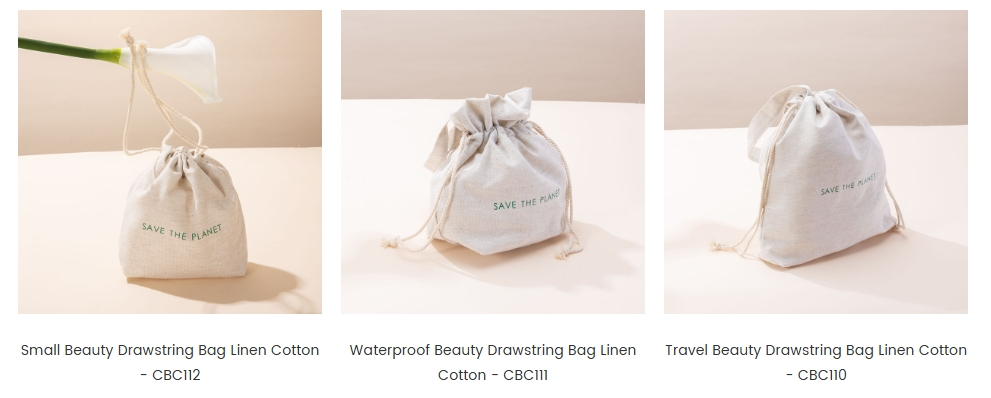
5. Recycled PET (RPET)
Description: Made from recycled plastic bottles, RPET reduces waste and is highly versatile. The global recycled plastic market is expected to reach $18.8 billion by 2025 (Source: Pakfactory Blog).
Applications: Cosmetic bags, makeup cases, travel kits.
Benefits: Reduces landfill waste, durable, and widely recyclable.
Challenges: Dependent on local recycling infrastructure.
Why Choose It: RPET’s versatility and eco-credentials make it a staple for brands transitioning from virgin plastics.
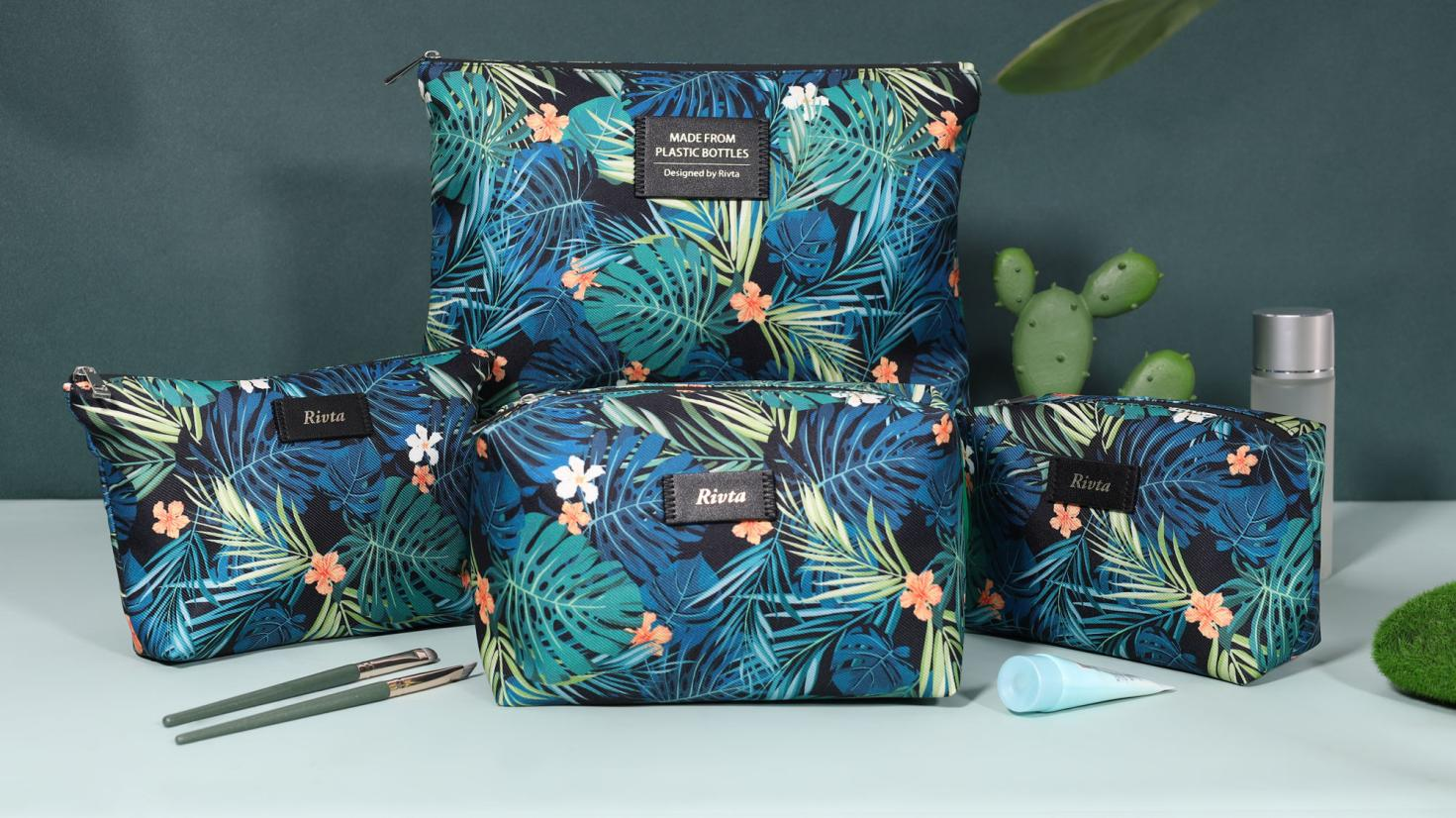
6. Recycled Vegan Leather
Description: Crafted from recycled materials like polyurethane or plant-based waste, recycled vegan leather mimics traditional leather without animal harm.
Applications: Makeup cases, premium cosmetic bags, compact exteriors.
Benefits: Cruelty-free, durable, and recyclable with a luxurious aesthetic.
Challenges: Production can be energy-intensive.
Why Choose It: Ideal for vegan and cruelty-free brands, offering a sustainable alternative to animal leather.
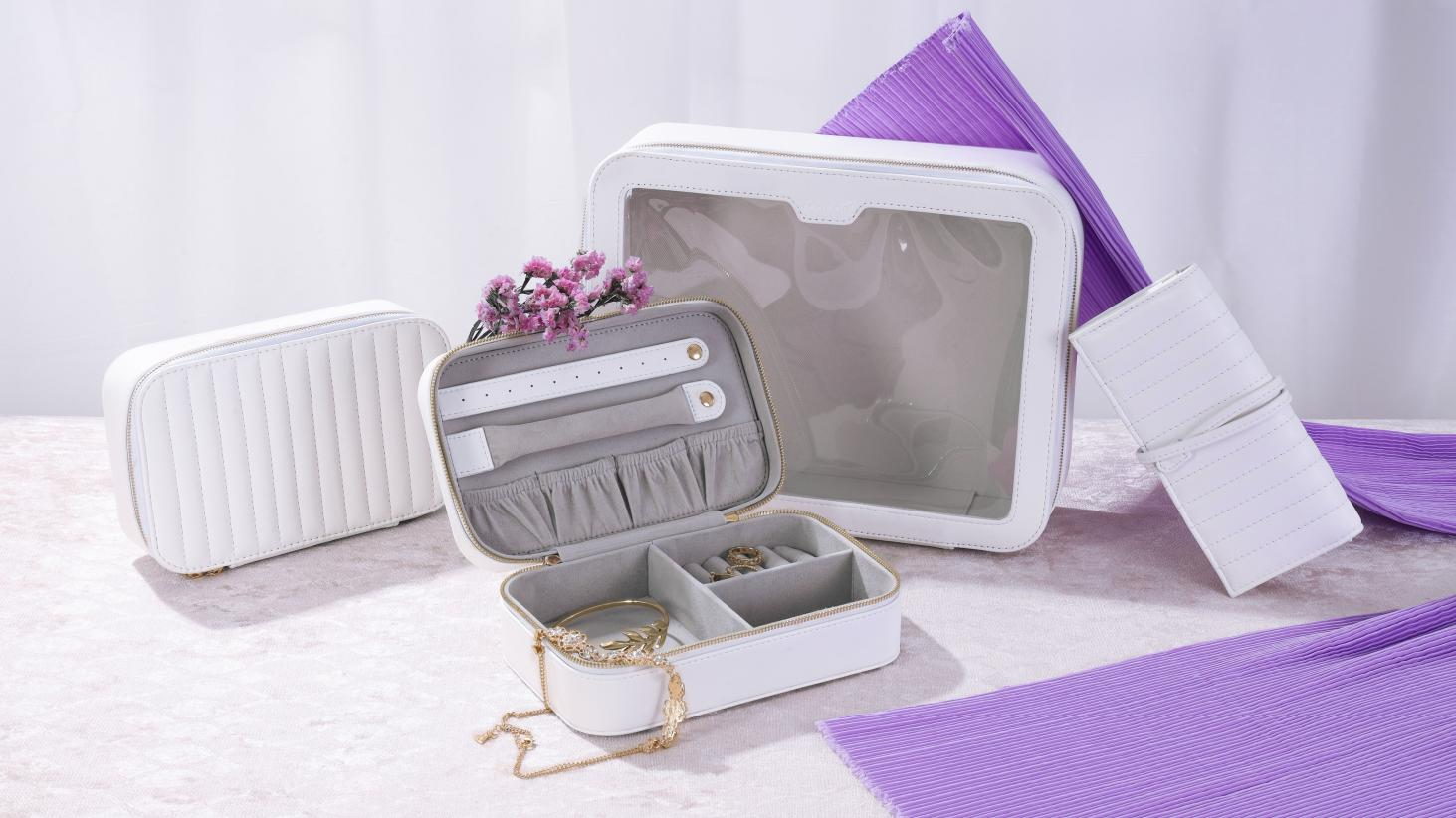
7. Recycled Nylon
Description: Made from recycled fishing nets, fabric scraps, or industrial nylon, this material reduces ocean waste and is highly durable.
Applications: Toiletry bags, travel pouches, durable cosmetic cases.
Benefits: Strong, lightweight, and recyclable, with a focus on reducing marine pollution.
Challenges: Limited color options compared to virgin nylon.
Why Choose It: Recycled nylon aligns with circular economy goals, appealing to brands focused on ocean conservation.
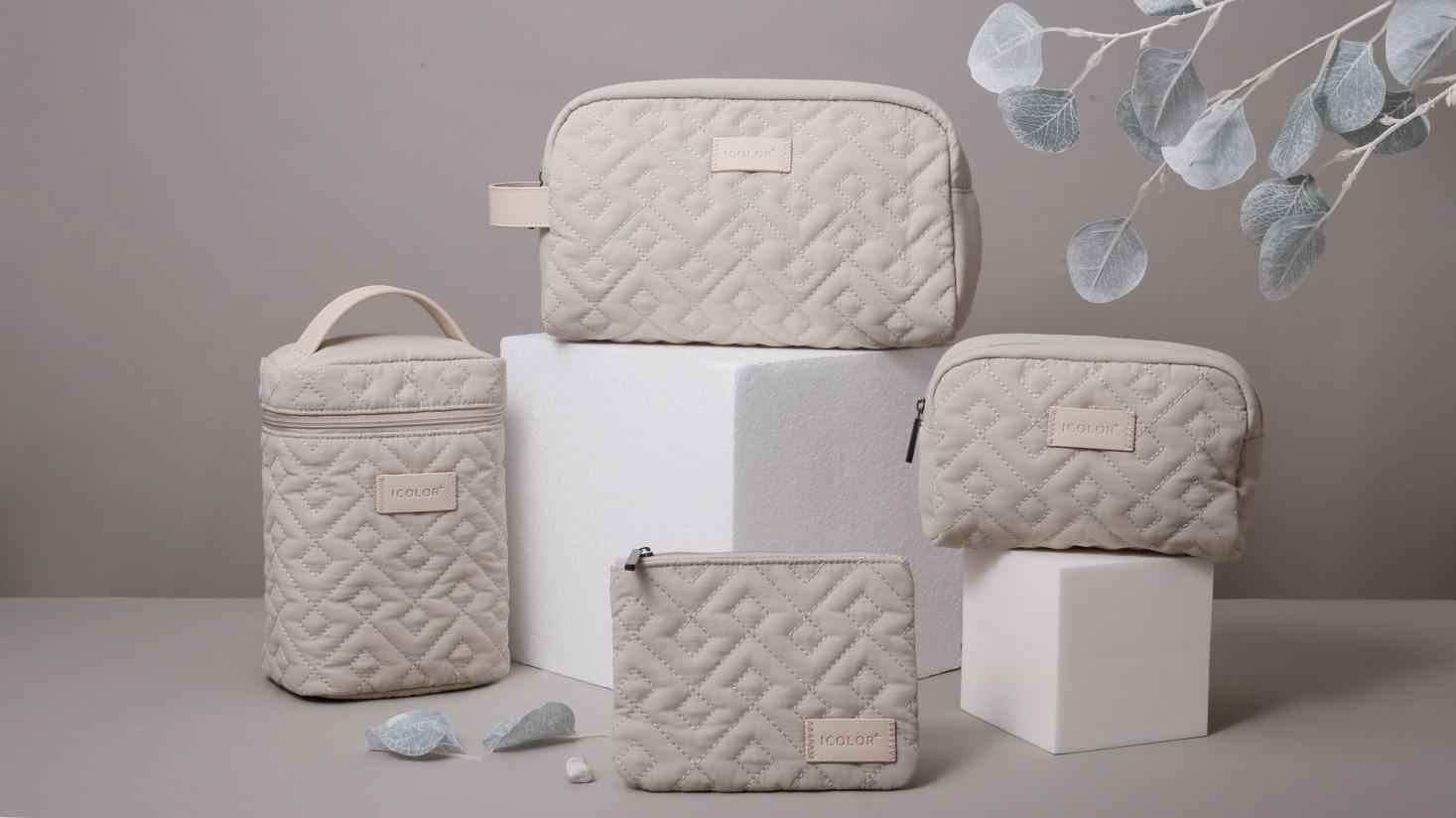
8. Banana Fiber
Description: Extracted from agricultural waste of banana plants, this biodegradable fiber is a sustainable byproduct.
Applications: Cosmetic bags, drawstring pouches, secondary packaging.
Benefits: Utilizes waste, biodegradable, and lightweight.
Challenges: Limited scalability and processing infrastructure.
Why Choose It: Banana fiber’s unique texture and eco-story make it a standout for innovative brands.

9. Pineapple Fiber
Description: Derived from pineapple leaf waste, pineapple fiber (often branded as Piñatex) is a biodegradable, cruelty-free alternative to leather.
Applications: Cosmetic bags, makeup cases, premium packaging.
Benefits: Sustainable, durable, and supports agricultural communities.
Challenges: Higher cost due to skilled processing.
Why Choose It: Pineapple fiber’s luxurious feel and ethical sourcing appeal to high-end, vegan-friendly brands.
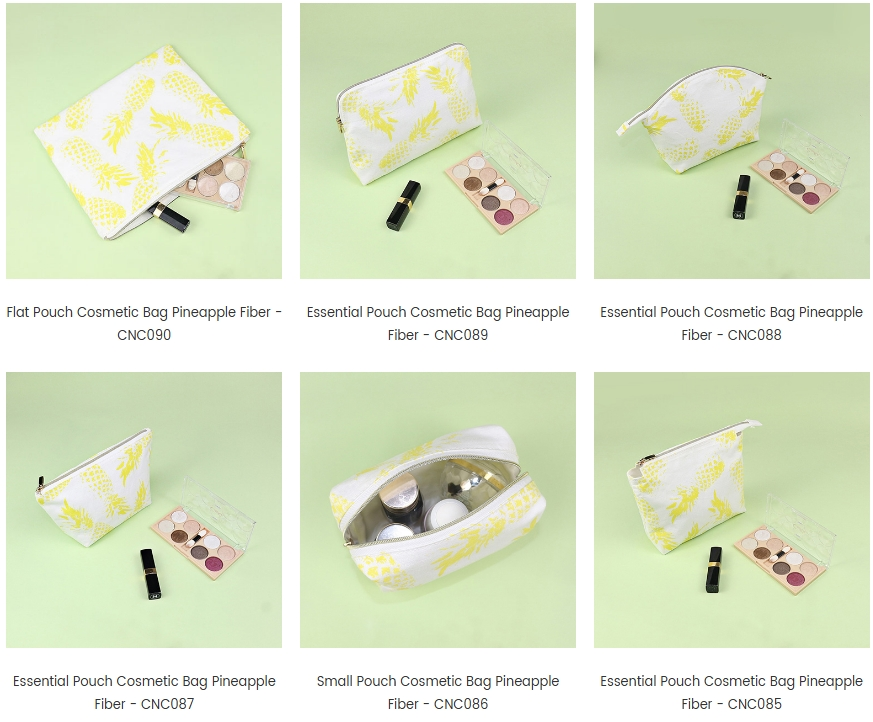
10. Apple Leather
Description: Made from apple peel and core waste, apple leather is a biodegradable, plant-based alternative to traditional leather.
Applications: Premium cosmetic cases, travel bags, compact exteriors.
Benefits: Vegan, biodegradable, and reduces food waste.
Challenges: Emerging material with limited widespread adoption.
Why Choose It: Apple leather’s innovative appeal and sustainability make it ideal for brands targeting eco-conscious luxury markets.
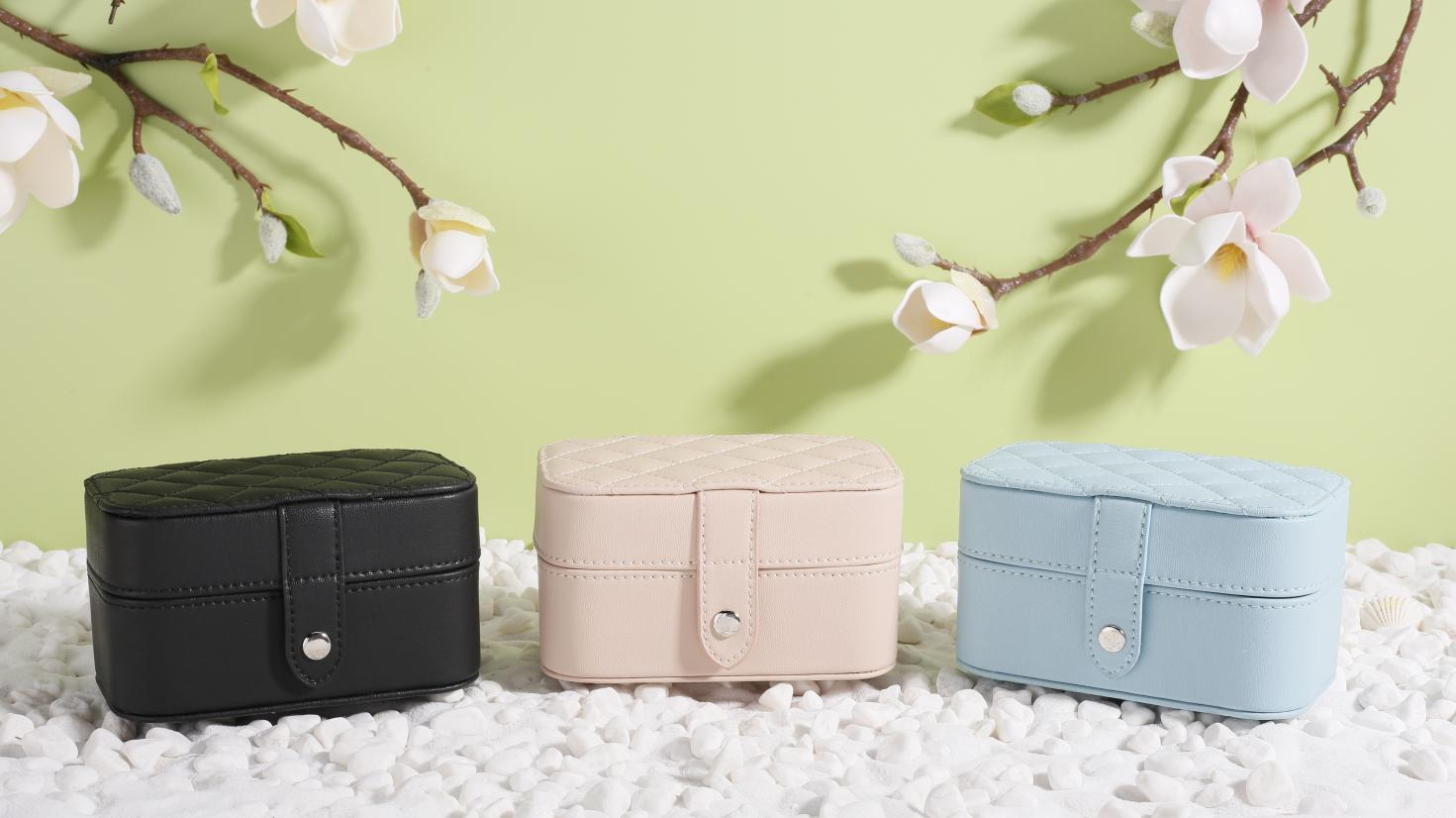
Comparison Table: Eco-Friendly Materials for Cosmetic Cases
| Material | Recyclability | Biodegradability | Best Use | Carbon Footprint | Cost |
|---|---|---|---|---|---|
| Bamboo Fiber | Low | High | Cosmetic bags, compacts | Low | Moderate |
| Tencel | Low | High | Soft pouches, bags | Low | Low |
| Natural Jute | Low | High | Tote bags, pouches | Low | Low |
| Linen Cotton | Low | High | Bags, brush holders | Low | Moderate |
| Recycled PET | High | Low | Bags, travel kits | Low | Moderate |
| Recycled Vegan Leather | Moderate | Low | Premium cases, bags | Moderate | High |
| Recycled Nylon | High | Low | Toiletry bags, cases | Low | Moderate |
| Banana Fiber | Low | High | Pouches, secondary packaging | Low | Moderate |
| Pineapple Fiber | Low | High | Premium bags, cases | Low | High |
| Apple Leather | Low | High | Premium cases, bags | Low | High |
How Rivta Empowers Your Brand
At Rivta Culture Equipment Co., Ltd., we’ve spent over 30 years perfecting sustainable beauty accessories, from cosmetic bags to toiletry kits, using materials like bamboo fiber, recycled PET, and pineapple fiber. As a L’Oréal-audited supplier with BSCI and ISO9001 certifications, we ensure quality and sustainability at every step. Here’s how we support your brand:
- Custom Design: From banana fiber pouches to apple leather makeup cases, we create bespoke solutions tailored to your brand’s vision.
- Sustainable Materials: Our portfolio includes certified materials like RPET, pineapple fiber, and recycled nylon, ensuring compliance with global standards.
- End-to-End Manufacturing: With a 3,000-square-meter factory and 120+ employees, we produce up to 200,000 pieces monthly, offering seamless design-to-delivery services.
- Proven Impact: A European skincare brand partnered with Rivta to develop recycled PET cosmetic bags, achieving a 35% reduction in carbon footprint and a 15% sales increase due to eco-friendly branding.
At Rivta Culture Equipment Co., Ltd., we’re committed to helping you lead the sustainability revolution with high-quality, custom cosmetic cases.
Ready to transform your packaging? Contact us at sales@rivta-factory.com to explore sustainable solutions tailored to your brand. Let’s create a greener tomorrow together.
